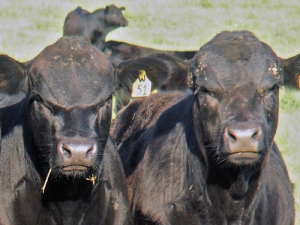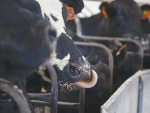This has the potential to treble calving income for dairy farmers and comes with the reassurances farmers need for animal health and production, says general manager of Angus NZ, Alan Cook.
He was responding to the Beef+Lamb Dairy Beef Integration Programme raising the potential for dairy farmers to significantly increase their income from calves by mating the balance of the herd to proven beef genetics.
Cook says dairy farmers traditionally breed early calving cows to high genetic dairy AI bulls as herd replacements, with the balance of herd often mated to 'run' bulls – either dairy or beef - with unknown genetics.
"Registered beef sires have Estimated Breeding Values (EBVs) which reassure farmers on five critical aspects – short gestation, calving ease, birth weight, temperament and bull fertility.
"Any one of these factors has a material impact on the productivity and profitability of the dairy farm and getting it right – on all counts – is more important this year than before. It's crucial for dairy farmers to only select bulls that have been bred for low birthweight and calving ease"
Cook says farmers have a wide choice of proven beef genetics in New Zealand and says the Angus breed is particularly well suited to the New Zealand dairy beef industry.
"Angus are naturally polled so farmers have a 'marker' which identifies them from dairy calves. "
He says there is demand for more Angus beef.
"The world is demanding more Angus beef and there is a very strong consumer preference in Asia for Angus. Using registered Angus bulls in dairy herds allows NZ to produce the grass fed Angus beef that consumers worldwide want."


















